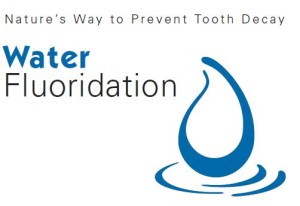Fluoride is an essential mineral to the oral health. In terms of whitening the teeth, this mineral always comes to the first line. Fluoride is first recognized in 1960s. It is best and commonly acquired through community’s water supplies. Due to its positive impact, fluoride received positive feedback and is deemed as the best mean to eliminate the chances of oral cavities and tooth decay.
Clearly, fluoride is a powerful substance that can ward off potential risks of tooth decay and cavities. Statistics proved that over 75% of American population experienced the benefit of fluoride. This is through water fluoridation.
Water fluoridation is the process of adding fluoride to a public water supply. Fluoridated water contains fluoride that effectively prevents cavities from transpiring. The added fluoride operates on the surfaces of your teeth in which your mouth experiences low levels of fluoride in saliva. As a result, the potential risks of cavities are greatly reduced.
Cavities are one of the major culprits in the world of dentistry. This dental problem is caused by various reasons and bad practices, including excessive intake of sugary food and drinks. Dental cavities or also known as tooth decay is considered a disease of the teeth. This both affects the teeth and enamel. As expressed earlier, this disease often caused by sugary food and drinks, such as soda, sport drinks, cake, candies and the likes. When traces of sugar are stuck in the teeth, cavities start to flourish.
Due to water fluoridation, cavities are greatly reduced. However, when something’s acquired excessively, it can produce adverse reactions.
Too much fluoride intake can result to dental fluorosis. Dental fluorosis often affects children and youngsters. This is best identified as chalky white lines which are usually called as opaque white spots. If left neglected, this affects the enamel. Fluorosis can cause enamel mottling. This condition makes your enamel yellow or brown.
When it comes to protecting teeth from cavities, oral hygiene is the best armor to use. Oral hygiene is a preventive care that comes with several techniques, like daily brushing. Daily brushing eliminates traces of food and sugar. This prevents dental plaques from taking place and is best paired with dental flossing. To complete the equation, get a dental consultation twice per year.
If you desire to learn more on water fluoridation, consider visiting your dentist on a regular basis. Dental consultation will help you reduce chances of cavities without exposing your teeth and enamel from dental fluorosis.
